Who Are the Top Vc Investors in Cyber Security Startups?
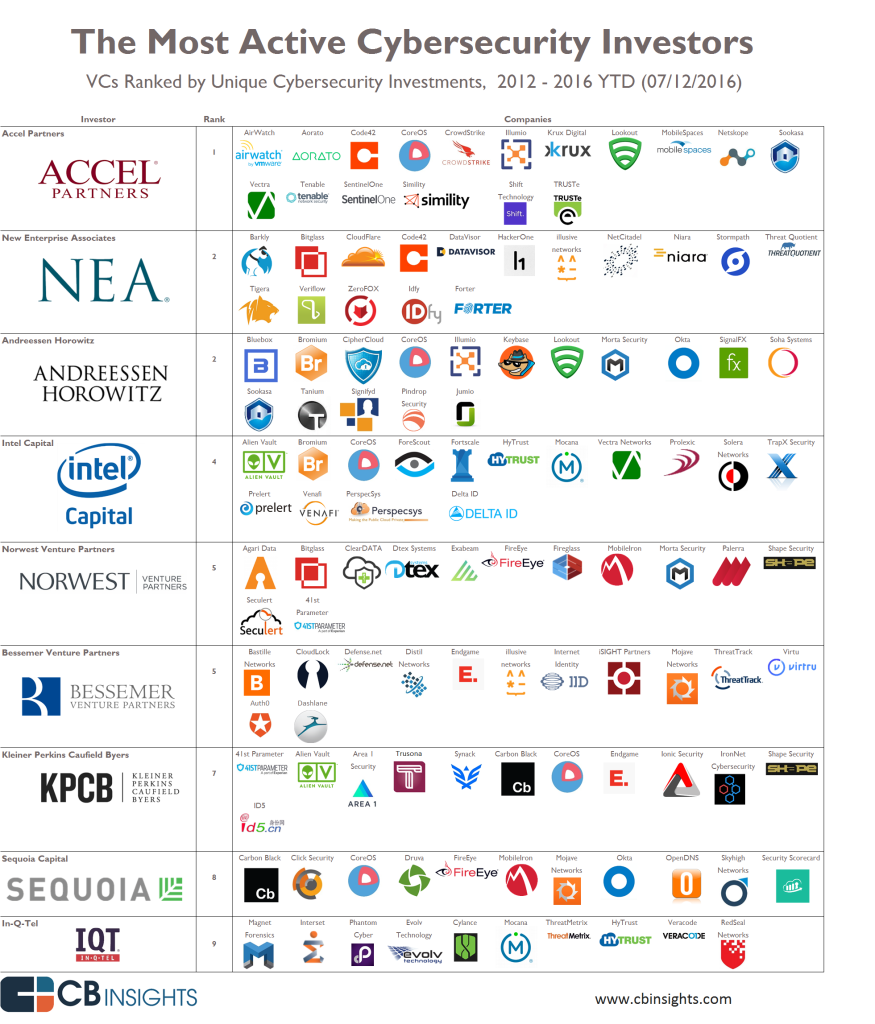
The cybersecurity industry has become a critical focus for venture capital (VC) investors as the demand for innovative solutions to combat digital threats continues to surge. With cyberattacks growing in frequency and sophistication, startups in this space are attracting significant attention and funding. Identifying the top VC investors in cybersecurity startups is essential for understanding the key players driving innovation and shaping the future of digital security. These investors not only provide capital but also bring strategic expertise, industry connections, and mentorship to help startups scale. This article explores the leading VC firms and individuals who are making a substantial impact in the cybersecurity ecosystem.
-
Who Are the Top VC Investors in Cyber Security Startups?
- 1. What Defines a Top VC Investor in Cyber Security?
- 2. Which VC Firms Are Leading in Cyber Security Investments?
- 3. What Are the Key Trends Driving Cyber Security Investments?
- 4. How Do Top VC Investors Evaluate Cyber Security Startups?
- 5. What Are Some Notable Cyber Security Startups Backed by Top VCs?
- Who are the big players in cyber security?
- What is VC in cybersecurity?
- Who invests in VC firms?
- Who is leading in cybersecurity?
- Frequently Asked Questions (FAQs)
Who Are the Top VC Investors in Cyber Security Startups?
1. What Defines a Top VC Investor in Cyber Security?
A top VC investor in the cyber security sector is typically characterized by their ability to identify and fund innovative startups that address critical security challenges. These investors often have a deep understanding of the cyber security landscape, a strong network within the industry, and a track record of successful exits. They also provide strategic guidance to help startups scale and navigate the competitive market.
See Also Which Venture Capital Firms Invest in Online Marketplaces?
Which Venture Capital Firms Invest in Online Marketplaces?2. Which VC Firms Are Leading in Cyber Security Investments?
Several VC firms have established themselves as leaders in cyber security investments. Some of the most prominent include Andreessen Horowitz, Sequoia Capital, Accel, Lightspeed Venture Partners, and Bessemer Venture Partners. These firms have consistently backed high-growth startups in areas such as threat detection, data privacy, and cloud security.
3. What Are the Key Trends Driving Cyber Security Investments?
The cyber security sector is driven by several key trends, including the rise of remote work, increasing ransomware attacks, and the growing adoption of cloud-based solutions. Additionally, regulatory changes and the need for compliance are pushing organizations to invest in advanced security technologies. These trends create opportunities for startups to innovate and attract VC funding.
See Also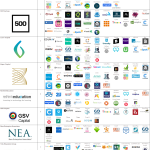 Who Are the Top Active Vcs in the Education Technology Space
Who Are the Top Active Vcs in the Education Technology Space4. How Do Top VC Investors Evaluate Cyber Security Startups?
Top VC investors evaluate cyber security startups based on several factors, including the strength of the founding team, the uniqueness of the technology, and the market potential. They also assess the startup's ability to address real-world security challenges and its potential for scalability. Investors often look for startups with a clear go-to-market strategy and a strong competitive advantage.
5. What Are Some Notable Cyber Security Startups Backed by Top VCs?
Several cyber security startups have gained significant attention and funding from top VC investors. Examples include CrowdStrike, SentinelOne, Darktrace, Snyk, and Tanium. These companies have developed cutting-edge solutions in areas such as endpoint security, AI-driven threat detection, and vulnerability management, making them attractive investment opportunities.
See Also Which Venture Capital Firms Invest Heavily in Bio Med and Healthcare Companies
Which Venture Capital Firms Invest Heavily in Bio Med and Healthcare Companies| VC Firm | Notable Investments | Focus Area |
|---|---|---|
| Andreessen Horowitz | CrowdStrike, Tanium | Endpoint Security, Threat Detection |
| Sequoia Capital | SentinelOne, Snyk | AI-Driven Security, Cloud Security |
| Accel | Darktrace, Arctic Wolf | AI-Powered Threat Detection |
| Lightspeed Venture Partners | Rubrik, Netskope | Data Protection, Cloud Security |
| Bessemer Venture Partners | Twistlock, Auth0 | Container Security, Identity Management |
Who are the big players in cyber security?

Major Cybersecurity Companies
The cybersecurity industry is dominated by several key players who provide a wide range of solutions to protect against cyber threats. These companies are known for their innovative technologies, comprehensive security suites, and global reach. Below are some of the most prominent names in the field:
See Also Who Are the Top Angels Investors Who Invest in Robotics Startups
Who Are the Top Angels Investors Who Invest in Robotics Startups- Palo Alto Networks: Known for its next-generation firewalls and advanced threat detection capabilities.
- Cisco Systems: Offers a broad portfolio of network security solutions, including firewalls, intrusion prevention systems, and endpoint protection.
- Symantec (now part of Broadcom): Renowned for its antivirus software and enterprise security solutions.
- Fortinet: Specializes in unified threat management (UTM) and secure networking solutions.
- McAfee: Provides endpoint security, cloud security, and data protection solutions.
Leading Cybersecurity Software Providers
Software providers play a critical role in delivering tools that safeguard systems and data. These companies develop software that detects, prevents, and mitigates cyber threats. Some of the leading providers include:
- Microsoft: Offers integrated security solutions like Microsoft Defender and Azure Security Center.
- CrowdStrike: Known for its endpoint protection platform and threat intelligence services.
- Trend Micro: Specializes in cloud security, endpoint security, and network defense.
- Kaspersky Lab: Provides antivirus and internet security solutions for both consumers and businesses.
- Sophos: Delivers endpoint protection, encryption, and network security solutions.
Top Cybersecurity Consulting Firms
Consulting firms help organizations assess risks, implement security strategies, and respond to incidents. These firms are essential for businesses seeking expert guidance. Key players in this space include:
See Also Which Vc Firms Have a Business Development Team That Works With Portfolio Companies
Which Vc Firms Have a Business Development Team That Works With Portfolio Companies- Deloitte: Offers cybersecurity consulting services, including risk management and incident response.
- PwC (PricewaterhouseCoopers): Provides cybersecurity strategy, governance, and compliance services.
- EY (Ernst & Young): Specializes in cyber threat intelligence and digital forensics.
- Accenture: Delivers end-to-end cybersecurity solutions, including managed security services.
- IBM Security: Known for its X-Force threat intelligence and security consulting services.
Innovative Cybersecurity Startups
Startups are driving innovation in cybersecurity with cutting-edge technologies and fresh approaches to tackling threats. Some notable startups include:
- Darktrace: Uses AI and machine learning to detect and respond to cyber threats in real-time.
- Cybereason: Focuses on endpoint detection and response (EDR) and anti-ransomware solutions.
- SentinelOne: Provides autonomous endpoint protection powered by AI.
- Zscaler: Specializes in cloud-based security and zero-trust architecture.
- Vectra AI: Offers network detection and response (NDR) solutions for enterprise environments.
Government and Non-Profit Cybersecurity Organizations
Government agencies and non-profit organizations play a vital role in shaping cybersecurity policies and providing resources. Some key entities include:
- National Institute of Standards and Technology (NIST): Develops cybersecurity frameworks and guidelines.
- Cybersecurity and Infrastructure Security Agency (CISA): Protects critical infrastructure and provides cybersecurity resources.
- European Union Agency for Cybersecurity (ENISA): Promotes cybersecurity across EU member states.
- Internet Security Research Group (ISRG): Known for developing Let's Encrypt, a free SSL/TLS certificate service.
- Open Web Application Security Project (OWASP): Focuses on improving software security through community-driven projects.
What is VC in cybersecurity?
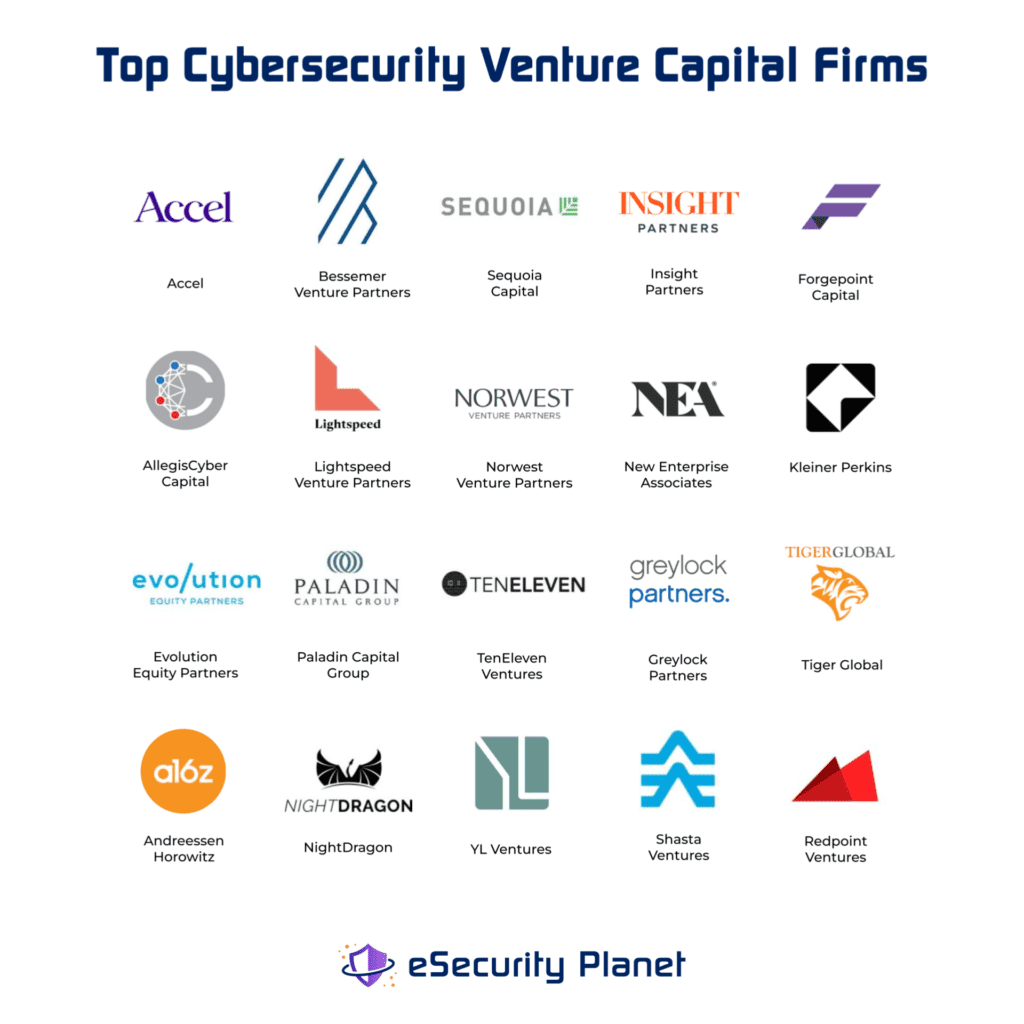
What is VC in Cybersecurity?
In cybersecurity, VC stands for Vulnerability Coordination, which refers to the process of identifying, reporting, and mitigating vulnerabilities in software, systems, or networks. This process involves collaboration between security researchers, organizations, and vendors to ensure that vulnerabilities are addressed before they can be exploited by malicious actors.
- Vulnerability Coordination helps in reducing the risk of cyberattacks by addressing weaknesses proactively.
- It involves a structured process of disclosure, where vulnerabilities are reported responsibly to avoid public exposure before a fix is available.
- Organizations often rely on Coordinated Vulnerability Disclosure (CVD) programs to manage this process effectively.
Why is VC Important in Cybersecurity?
Vulnerability Coordination is crucial in cybersecurity because it ensures that vulnerabilities are managed in a way that minimizes harm to users and organizations. Without proper coordination, vulnerabilities could be exploited, leading to data breaches, financial losses, and reputational damage.
- It fosters trust between security researchers and organizations.
- It helps in maintaining the integrity of systems and software by ensuring timely patches and updates.
- It reduces the likelihood of zero-day exploits by addressing vulnerabilities before they are publicly known.
How Does VC Work in Practice?
In practice, Vulnerability Coordination involves several steps, starting from the discovery of a vulnerability to its resolution. Security researchers or ethical hackers identify vulnerabilities and report them to the affected organization or a third-party coordination entity.
- The vulnerability is verified by the organization or vendor to confirm its validity.
- A patch or mitigation strategy is developed to address the vulnerability.
- The vulnerability is disclosed to the public only after a fix is available, following a responsible disclosure policy.
Key Players in VC
Several key players are involved in the Vulnerability Coordination process, each with a specific role to ensure the process runs smoothly and effectively.
- Security Researchers: Identify and report vulnerabilities.
- Vendors and Organizations: Develop and deploy patches or fixes.
- Coordination Entities: Act as intermediaries to facilitate communication and ensure responsible disclosure.
Challenges in VC
Despite its importance, Vulnerability Coordination faces several challenges that can hinder its effectiveness.
- Lack of Communication: Miscommunication between researchers and organizations can delay the resolution process.
- Resource Constraints: Organizations may lack the resources to address vulnerabilities promptly.
- Legal and Ethical Issues: Navigating the legal and ethical landscape of vulnerability disclosure can be complex.
Who invests in VC firms?
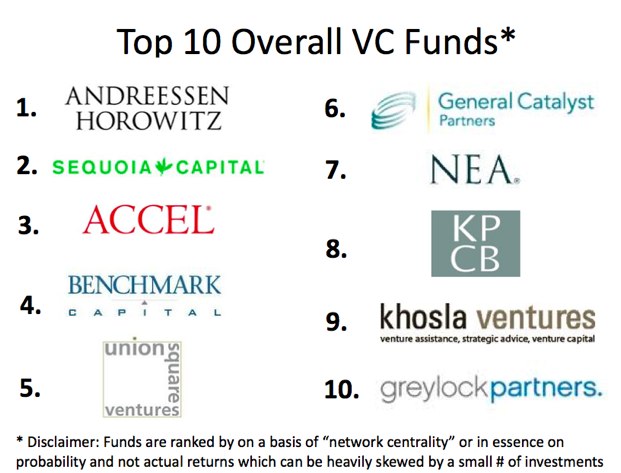
1. Institutional Investors
Institutional investors are among the primary contributors to venture capital (VC) firms. These entities include:
- Pension funds: Large pools of retirement savings that allocate a portion of their capital to high-growth investments.
- Endowments: Funds managed by universities or nonprofit organizations seeking long-term returns.
- Insurance companies: They invest in VC firms to diversify their portfolios and achieve higher returns.
2. High-Net-Worth Individuals (HNWIs)
Wealthy individuals often invest in VC firms to gain access to high-growth startups. Key characteristics include:
- Personal wealth: They use their own capital to invest directly or through funds.
- Angel investors: Many HNWIs start as angel investors before moving into VC.
- Diversification: They seek to diversify their investment portfolios beyond traditional assets.
3. Family Offices
Family offices manage the wealth of ultra-high-net-worth families and often invest in VC firms. Their approach includes:
- Direct investments: They may invest directly in startups or VC funds.
- Long-term focus: Family offices prioritize generational wealth preservation and growth.
- Customized strategies: They tailor their investments to align with the family’s goals and values.
4. Corporate Investors
Corporations invest in VC firms to stay competitive and innovative. Their motivations include:
- Strategic partnerships: They seek access to cutting-edge technologies and startups.
- Corporate venture capital (CVC): Many corporations have their own VC arms to invest in relevant industries.
- Market expansion: They aim to explore new markets and business models.
5. Sovereign Wealth Funds
Sovereign wealth funds (SWFs) are state-owned investment vehicles that allocate capital to VC firms. Their involvement includes:
- Diversification: SWFs invest globally to diversify their national wealth.
- Economic development: They support innovation and entrepreneurship in their home countries.
- Long-term returns: SWFs focus on sustainable and high-growth investments.
Who is leading in cybersecurity?
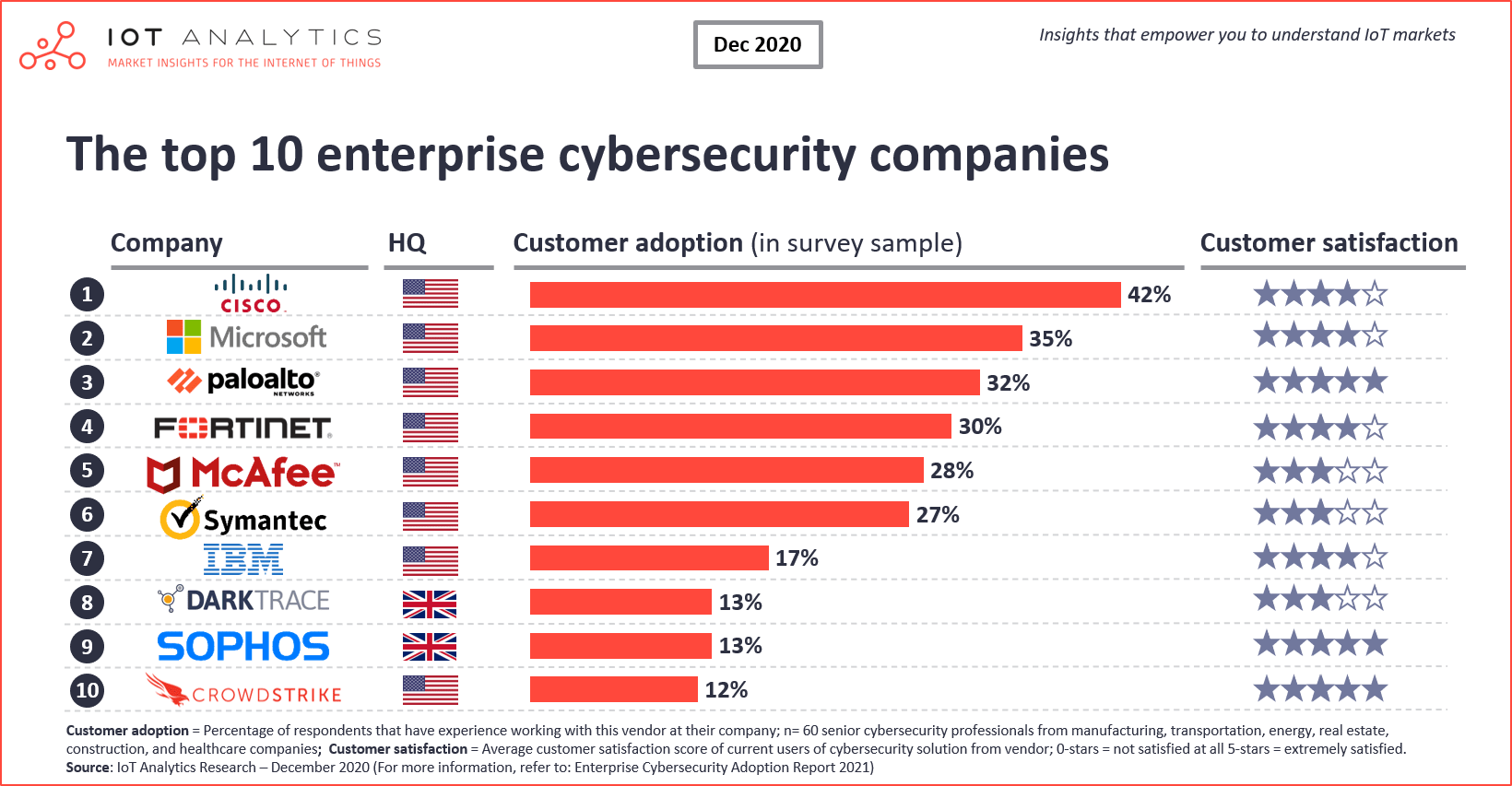
Which Countries Are Leading in Cybersecurity?
Several countries are recognized for their advanced cybersecurity measures and capabilities. The following are key players:
- United States: Home to major tech companies and cybersecurity firms, the U.S. leads in innovation and defense strategies.
- Israel: Known for its robust cybersecurity ecosystem, Israel invests heavily in research and development.
- United Kingdom: The UK has a strong focus on national cybersecurity policies and collaboration with private sectors.
Which Companies Are at the Forefront of Cybersecurity?
Several companies dominate the cybersecurity industry due to their innovative solutions and global reach:
- Palo Alto Networks: A leader in next-generation firewalls and cloud-based security solutions.
- CrowdStrike: Specializes in endpoint protection and threat intelligence.
- Fortinet: Known for its comprehensive security fabric and network security solutions.
What Are the Key Technologies Driving Cybersecurity Leadership?
Emerging technologies are shaping the future of cybersecurity leadership:
- Artificial Intelligence (AI): Enhances threat detection and response capabilities.
- Zero Trust Architecture: A security model that assumes no user or device is trusted by default.
- Blockchain: Provides secure and transparent data management solutions.
How Do Governments Contribute to Cybersecurity Leadership?
Governments play a critical role in establishing cybersecurity leadership through policies and initiatives:
- National Cybersecurity Strategies: Many countries have developed comprehensive plans to protect critical infrastructure.
- Public-Private Partnerships: Collaboration between governments and private sectors strengthens cybersecurity defenses.
- Cybersecurity Education: Governments invest in training programs to build a skilled workforce.
What Are the Challenges in Maintaining Cybersecurity Leadership?
Maintaining leadership in cybersecurity comes with significant challenges:
- Evolving Threat Landscape: Cybercriminals constantly develop new attack methods.
- Resource Constraints: Organizations often struggle with limited budgets and expertise.
- Regulatory Compliance: Adhering to diverse and complex regulations can be challenging.
Frequently Asked Questions (FAQs)
Who are the top venture capital investors in cybersecurity startups?
Venture capital investors play a crucial role in funding and supporting cybersecurity startups. Some of the top investors in this space include Sequoia Capital, known for its early investments in companies like Palo Alto Networks, and Accel, which has backed firms such as CrowdStrike. Other notable names are Andreessen Horowitz, which focuses on cutting-edge technology, and Bessemer Venture Partners, which has a strong track record in cybersecurity investments. These firms provide not only capital but also strategic guidance to help startups scale and succeed.
What criteria do top VC investors use to choose cybersecurity startups?
Top venture capital investors evaluate cybersecurity startups based on several key factors. These include the strength of the founding team, the innovation and uniqueness of the technology, and the market potential of the solution. Investors also look for startups with a clear go-to-market strategy and a strong value proposition. Additionally, they assess the startup's ability to address pressing cybersecurity challenges, such as data breaches, ransomware, and cloud security, which are critical in today's digital landscape.
How do top VC investors support cybersecurity startups beyond funding?
Beyond providing financial support, top VC investors offer a range of resources to help cybersecurity startups thrive. This includes mentorship from industry experts, access to a network of potential partners and customers, and guidance on scaling operations. Many investors also assist with recruitment, helping startups attract top talent, and provide strategic advice on product development and market positioning. These resources are invaluable for startups looking to navigate the competitive cybersecurity landscape.
What are some successful cybersecurity startups backed by top VC investors?
Several cybersecurity startups have achieved significant success with the backing of top VC investors. For example, CrowdStrike, backed by Accel, has become a leader in endpoint security. Palo Alto Networks, supported by Sequoia Capital, is now a major player in network security. Another success story is SentinelOne, which received funding from investors like Third Point Ventures and has grown into a prominent name in autonomous cybersecurity. These examples highlight the impact that top VC investors can have on the growth and success of cybersecurity startups.
Leave a Reply

Our Recommended Articles